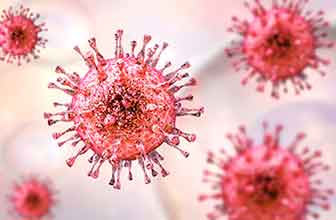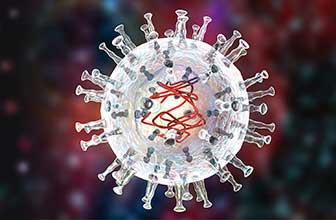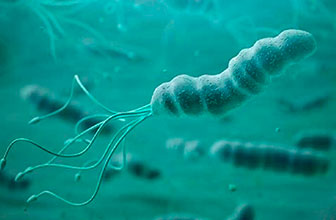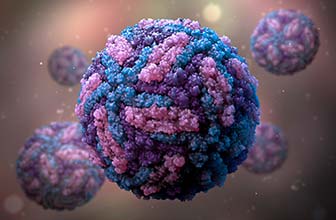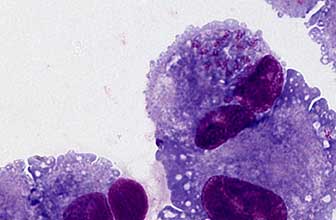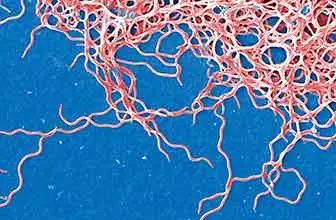Infectious disease
Syphilis
Syphilis is a sexually transmitted disease (STD) caused by the bacteria Treponema pallidum. It is part of the diseases included in the TORCH panel. The transmission is through the sore of an infected person during sexual activity, by coming into contact with cuts or abrasions on the skin or mucous membranes. It can also be transmitted during pregnancy or childbirth (congenital syphilis), as well as through blood transfusions. Syphilis develops in stages, with symptoms varying with each: primary (sores at the original site of infection), secondary (skin rash, swollen lymph nodes, and fever), latent (without signs or symptoms) and tertiary (serious medical problems in the heart, brain and other organs, even causing death). At any stage, syphilis can spread and, among other things, cause damage to the brain, nervous system, and eye. Congenital syphilis can cause premature birth or even death before or after birth. In infected babies, in most cases there are no symptoms, except for a rash on the hands and feet on some occasions. Subsequently, deafness and dental and nasal deformities may appear. The most common treatment to treat this disease is penicillin, or any antibiotic in case of having an allergic reaction to it, and as a prevention practicing safe sex and getting tested for STDs regularly is recommended. The diagnosis of syphilis is made through blood tests to detect antibodies against the disease, or analysis of the cerebrospinal fluid if there is involvement of the nervous system.
It is estimated that there are 7 million new syphilis infections in the world every year. In the early stages it can occur without producing any symptoms, but if left untreated, it can affect the entire body. Between 15-30% of people infected with syphilis who do not receive treatment will progress to the tertiary stage. Since 2000, the number of cases in the primary and secondary stages have increased among men.
References of Syphilis
RECOMBINANT ANTIGENS
Name, references, and description
ChimSyphilis1
- RAG0046 (chimera)
- RAG0046BIOT (biotinylated, chimera)
- Multi-epitope recombinant chimeric antigen for Treponema pallidum
ChimSyphilis2
- RAG0064 (chimera)
- RAG0064BIOT (biotinylated, chimera)
- Multi-epitope recombinant chimeric antigen for Treponema pallidum
ChimSyphilis3
- RAG0086 (chimera)
- RAG0086MBIOT (chimera, multi-biotinylated)
- Multi-epitope recombinant chimeric antigen for Treponema pallidum
Brochures
- Rekom Biotech catalogue
- Recombinant proteins for in vitro diagnosis of human infectious diseases
- IVD reagents for TORCH
- Sexually transmitted diseases (STD)
- IVD reagents for Transfusion-Transmitted Infectious diseases
- Recombinant antigens for diagnosis of Syphilis
Videos
Specialists in IVD reagents for infectious disease diagnosis
We ensure a commitment to absolute confidentiality regarding all information received and generated related to your project.
-
[[carrito.product.name]]
- [[sku.sku]]
Or if you prefer...
We will analyze your request to prepare a quote tailored to your needs.
-
[[carrito.product.name]]
- [[sku.sku]]
As manufacturers, we can adapt our products to your needs.
Contact us!

